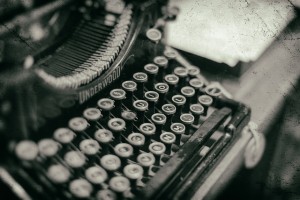
By Colorado Review Editorial Assistant Evan Senie
I am a first year fiction student in Colorado State University’s MFA program. As I’ve been adjusting to a new routine of workshopping stories and teaching undergraduate classes, I’ve begun to think more about my place as a writer within the larger literary world. It’s become clear to me that there is far too much valuable literature to be consumed within a lifetime, and that I will have to develop a system to guide my reading. The National Book Awards, which came out a few days ago, prompted me to consider what I value when creating a purposeful reading list. One factor is quality, and it seems that these awards can serve as a filtering system of sorts. For example, Jesmyn Ward just won the fiction prize for the second time, which indicates that there is something in her work that strikes people as powerful and unique. The generally high quality of these books also suggests that they will likely offer something to consider with regards to craft. There may be a style that is working particularly well, or an aspect of character development or narrative arc that could feel fresh and useful. Another way in which these works could prove valuable is in their ability to help a developing writer understand what is being appreciated at this moment in literary history. That’s not to say that one should mine these stories for superficial elements that might make them popular, but rather that one can situate oneself as fully as possible in the present literary environment, and then find a way to contribute.
It would be possible to construct an extended reading list solely from the winners of major awards, and if this list were extended to include the entire shortlist for each year, there would be enough books to last even a voracious reader many years. While this is tempting, and would undoubtedly lead to some beautiful and edifying reading, I think it would be unwise. The reading list that I am constructing now includes a number of major award winners and runners-up, but I am trying to expand the scope of my search. There are two main reasons for this. One is that I think there is no universally satisfactory definition of “the best books.” These awards, as indicated above, represent a useful filtering for quality, but are subjective in nature. It seems more important for a developing writer (and curious reader) to look for works that might challenge them in interesting ways. It’s important to be self-reflective, and to understand which type of book might help expand one’s knowledge, might offer the most opportunity for growth. It’s quite possible that the books that would be best for a particular person might not be the ones that were deemed best by the people at the top of the literary community. The second reason to stray from the award winners is that there exists the possibility that we might limit the art itself by excluding certain voices. This could lead to a homogenization or at least a convergence toward a particular voice, style, or narrative structure. For the past six years the works that have won the National Book Award have come from one of the “Big Five” publishers. There are, undoubtedly, outstanding works of fiction published each year by small presses, and it seems that these books don’t stand much of a chance to win this award.
The conclusion here is certainly not to eschew the books that win major prizes. I think that they represent some of the best available creative work, and to ignore them would be to do oneself a disservice. It is simply to point out that part of the beauty of literature is its great diversity, its weirdness, its ability to examine the human condition in new and authentic ways. I think that the aspiring writer and the dedicated reader of literature should try, to the extent that they are able, to craft a reading list that honors the winners of these major awards without forgetting about the abundance of quality literature being published by smaller presses, or the subjectivity of the entire endeavor.